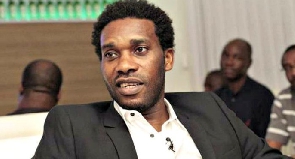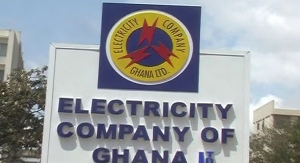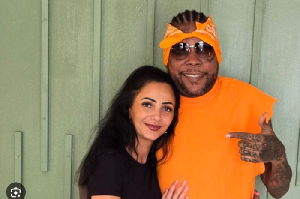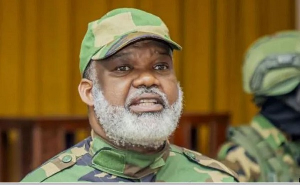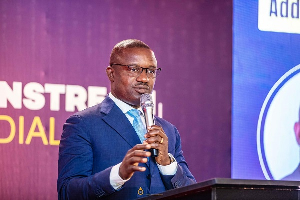It has been argued by some political and social commentators and observers of Ghana that President Mills of Ghana will be a one term president. While it is easy to assume this, I refuse to go with the flow. Things don’t seem to be as bizarre as others would have us believe. Like many presidents, yes, President Mills has had some problems and still seems to have issues to grapple with, especially with some of his party elders, notably Ex-President Rawlings. One of the political commentators who have come out strongly against President Mills' incumbency is Kwaku Asare. This article is a rejoinder to Kwaku Asare’s piece (http://www.dailyguideghana.com/?p=26558), which appeared in the September 13 issue of Daily Guide.
In his article Kwaku Asare gives seven prognoses why Mills will be a one term president. According to Kwaku Asare, President John Evans Atta Mills has already made history by being the first president to face a primary challenge. Therefore it is increasingly likely that he will also become the first one-term president. He went on to give seven reasons to support his hypothesis:
1. That President Mills has a weak mandate:
Kwaku Asare argues that since President Mills lost the first round of the 2008 election by almost 2 points and only managed to win the second round by a hair, he has little chance a second time. He argues that such an electoral outcome calls for governing by consensus and from the centre, which has been lacking. This assertion is not strong enough to oust a sitting “African president. He goes on to say that although the President’s pledge of “being a father of all nation” suggested that he appreciated the importance of not overreaching; his actions have been overly divisive, effectively undermining his pledge. The article does not take into consideration the many friends and political acquaintances available to a sitting president. The incumbent always has the urge when it comes to forming alliances with other political groups, especially the small political parties. Already there are plans to court the CPP and other political parties.
2. That the President has abused his appointment power by appointing friends and close relatives: This assertion is weak and baseless. First the article could only name one sibling of President Mills. Although an example may suffice as proof it only does so where the brother or relative were woefully unqualified. In this instance, the brother is a highly qualified individual. As an engineer and a citizen of Ghana nothing limits Mr. Mills’ accepting a government portfolio. All other presidents have appointed their relatives or friends to hold political appointments at one time or the other; sometimes they were not even qualified. In the case of President Mills’ his inner circle of friends come with strong credentials. If the adage Kwaku Asare quotes “show me your friends and I will tell you your character”, is relevant here, then President Mills would rather benefit from the polls for associating with highly qualified individuals (in his inner cabinet)—“Birds of the same feathers flock together. I wish Kweku had given us some names of Mills’ unqualified team. Who are the ex-convicts Kwaku alludes to? We need to know. I remember, initially President Mills had a high time filling his cabinet positions but after two and a half years in office, this must be resolved by now. It is not fair to lump all of the NDC together as such. Although I personally accept that running the economy of Ghana has been a challenging one for President Mills and his team, the quality of Mills’ team has not by any means been compromised. Yes, it may be true that politically neither President Mills nor his appointees are doing a superb job, but it does not presuppose that they will not or cannot improve before the next elections.
3. That the President is not in charge of his team and every minister appears to be a free agent, pursuing their own policies: Although it appears the President’s leadership style do not meet our traditional biases, we cannot say President Mills is too weak to hold the center. In-fighting at the Castle is not peculiar to Mills’ NDC. There is factions in the NDC like all other parties but unfortunately for President Mills it had not been easy to contain the Rawlings faction. The problem had been conflict of interest with the founder of the party, J.J. Rawlings. Now that Mills has been able to silence the Rawlings’s at the recent NDC Congress one would hope that we shall begin to see some strong leadership from the president before the next elections. Therefore I find Kwaku’s assertion to be weak.
4. That, subsequent events have cast the President as a hypocrite who says one thing while doing something else: This assertion is weak because BASICALLY most politicians are hypocrites. The nature of politics has been such that a politician will tell you what you want to hear just to get your votes although they know they won’t or can’t deliver. Although this is wrong, it does not by itself weaken the president’s chances for a second term, unless there is a formidable opposition. I am yet to see a president who has delivered 50% of his or her promises. So long as Mills can show that he has been able to deliver some of his promises he can win some sympathy of an extended time to complete his delivery in a second term. All he needs is to show that he is on track. Unless there is enough evidence to prove that the opposition will do what it says it will do all the list Kwaku gives will not necessarily impact voters’ decision in 2012. It takes more than that. So long as there is no acute economic and or political crisis, Mills’ still has a chance for a second term.
5. That, the President’s failure to chalk a major policy victory would deny him 2012: This assertion is weak on several counts. First, Mills’ presidency still has more than a year to redeem itself. Yet the fact that the oil exploration happened on his watch is a major asset. President Kufour began the process and Mills has not let him down. So far there is peace in Ghana and Ghanaians are upbeat. This alone gives Mills a second chance to stabilize the oil industry in Ghana. One thing that this author believes is in favor of Mills is his honesty and selfless nature. This would prevent others to loot Ghana’s oil money as seen in other African countries like Nigeria. It takes an honest and selfless leader like Mills to limit corruption in an oil-producing nation. Kwaku has lauded all the former presidents of Ghana. He wrote, “Dr. Nkrumah had the Akosombo Dam and numerous projects to his credit. Dr. Busia had his sewage plan and rural development. Acheampong had operation feed yourself, etc. But President Mills has no big project to his credit. A traffic light commissioned at Pankesese; sod-cutting to build a 2-classroom unit, etc. These are minor accomplishments that, under normal circumstances, are best left for the DCE.” Is this true? Has Mills really done nothing to oversee Ghana’s economic boost? Last time I heard Ghana was the fastest growing economy in 2011. Yes it is true that Kufuor got creditors to forgive $6 billion in debt and we should be thankful but I believe it is even better to generate our own revenue and take care of ourselves as a nation.
6. That, if even more-favored Kufuor lost several points in his re-election bid for over-promise in 2000 how much more President Mills who only got a hair over 50 percent when he won in 2008? Make no mistake, if Rawlings and Kufuor both won a second term when Ghanaians were not so crazy about their first term performances, what makes them treat Mills differently. Again I think Kwaku’s assertion is a little weak here. Especially because the Ghanaian electorate is not all that sophisticated to judge on merit. I wish they were. Then I would have supported Kwaku’s assumptions. Usually the incumbent win elections simply because they have access to the money. How can we expect Mills to do otherwise? Kwaku is right that all our presidents, without exception, get a smaller percentage of the votes when they are up for re-election than they did when they won. However, we are yet to see a one term president in Africa. Although Mills may probably have lower approval rating than Kufuor’s numbers it does not guarantee a rejection in the next election. Again Kwaku does not take into consideration the use of incumbent power to turn electionsaround to its favor. If the NDC were wise enough, it would use the next year to negate its wrongs and get more connected to the people. I am sure Mills is good enough to know this and will be working towards it.
7. That the fact that Mills is going to face an opponent who won about 50 percent of the votes in 2008 makes him liable for defeat: A very formidable opposition in 2008 does not necessarily translate into a formidable opposition in 2012. If Atta Mills could come back from behind with 48% to win over Nana Addo with 49%, it may be a little childish to assume that Atta Mills is not going to do everything to maintain the coalitions and alliances that gave him the extra 2% now that he has the political means to do so. Nana Addo would have to work a little harder than depending on former victories. Yesterday is gone, today is another day. Yesterday’s friendships may not be today’s friends. At this stage, I believe the only advantage Nana has is the inner conflict within the NDC’s hierarchy. So long as Rawlings and Mills do not see eye-to-eye Nana Addo has a better chance. If Nana Addo would win he needs Rawlings to do what he has been doing since the first 6 months of Mills’ presidency.
I am afraid Kwaku Asare’s 7 Prognosis are not strong enough to deny Mills a second term. Forget about the failures of Mills as listed by Kwaku Asare, this author believes Mills definitely has a second chance when you take the Rawlings factor out. One would have wished that presidents would deliver their promises BUT UNFORTUNATELY the Ghanaian electorate does not care enough to hold their leaders that much accountable. I strongly agree with Kwaku Asare that “Our Presidents over-promise and end up disappointing,” but I am yet to see one president in Africa that was rejected a second term by the people for under-delivery.
Okyere Bonna
• The author has no political affiliation in Ghana. The author is the author of: A NEW AGENDA FOR GHANA, CONVERSATION WITH THE PEOPLE OF GHANA, STOPPING THE CARNAGE ON AFRICAN ROADS, and co-author of Traditional institutions and public administration in democratic Africa. For more information about the author visit: www.okyerebonna.com
Reference: http://www.dailyguideghana.com/?p=26558. Retrieved September 14, 2011
Opinions of Friday, 16 September 2011
Columnist: Bonna, Okyere






![The suspect, Daniel Tuffuor [L] and deceased Yobani Deladem Aku The suspect, Daniel Tuffuor [L] and deceased Yobani Deladem Aku](https://cdn.ghanaweb.com/imagelib/pics/404/40485450.295.jpg)

